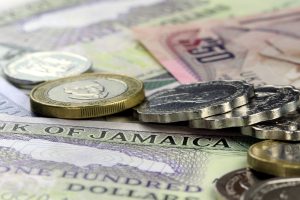United States:
U.S. Core Inflation Shows Signs of Life as Fed Weighs Cut
“The Federal Reserve’s preferred measure of underlying U.S. inflation showed signs of picking up in May toward the central bank’s goal, potentially raising the bar for an interest-rate cut when policy makers meet at the end of next month. The core personal consumption expenditures price gauge, which excludes food and energy, rose 0.2% from the prior month and 1.6% from a year earlier, according to a Commerce Department report Friday. The annual gain was just above the median estimate in a Bloomberg survey, and the three-month annualized increase advanced to about 2%, a five-month high. Purchases, which make up the majority of the economy, rose 0.4% from April, slightly below estimates, following an upwardly revised 0.6% gain in April. Personal income increased 0.5% for a second month, topping forecasts, though wages and salaries climbed at the slowest pace in six months. While Friday’s figures alone are unlikely to spur the Fed to act one way or another, a sustained flow of positive economic news in coming weeks could persuade policy makers to keep interest rates unchanged, despite pressure from financial markets and President Donald Trump. Stronger consumer spending and higher incomes should support future growth as the expansion becomes the longest in U.S. history in July.”
Europe:
U.K. June Consumer Confidence Drops as GfK Sees Turbulent Summer
“U.K. consumer confidence took another dip in June as Britons became more pessimistic about their personal financial situation in the face of Brexit uncertainty. GfK’s headline confidence measure dropped to minus 13, erasing a slight rebound in May, the firm said in a report Friday. All five components of the index — encompassing scores for personal finances, general economic optimism and major purchase intentions — dropped from the previous month. The findings indicate the economy could see a rocky time ahead, with a change in prime minister potentially bringing more turmoil. Concerns over a no deal Brexit have resurfaced during the leadership race, with both Boris Johnson and Jeremy Hunt saying they’d consider an exit without a transition period. “While U.K. consumers continue to remain concerned about the wider economy, over which the woman or man in the street has no control, of greater worry are the falls in the measures for personal finance,” said Joe Staton, client strategy director at GfK. “These better reflect our hopes and fears for our everyday financial futures and this, coupled with a decline in the Major Purchase Index, could point to a turbulent time for the economy over the summer months.” A separate report from Lloyds showed business optimism edged higher in June, but remained well below levels seen in 2018.”
Asia:
China Is Walking a Monetary Tightrope as Trade War Plays Out
“Policy makers in Beijing are trying to funnel cash into the economy while warding off a re-inflation of the property market bubble, a task made doubly hard by the uncertainty generated by the intensifying trade war. That tightrope act has become more evident in the past couple of days, with further steps taken to curb lending for mortgages even as the central bank tries to increase credit available to small businesses, the private sector and manufacturers. The People’s Bank of China is leaning on commercial lenders not to reduce home mortgage rates, amid signs that the traditionally frothy sector is poised to take off again, according to people familiar with the matter. At the same time, a report by the central bank released Thursday soft-pedaled a campaign to rein in risks in the banking sector, amid jitters caused by the seizure of regional lender Baoshang Bank Co. a month ago. All of the government’s efforts to manage its domestic conundrums could be thrown into turmoil if the outcome of the high-stakes encounter between President Xi Jinping and President Donald Trump this weekend leads to a re-escalation of trade war tensions. That could put supporting growth front and center of the Chinese domestic agenda again. “Easing and tightening may co-exist, and it depends on where you look at”, said Betty Wang, senior China economist at Australia & New Zealand Banking Group Ltd. in Hong Kong. She said policy makers need to balance economic growth with debt management, which means expansion won’t be achieved by sacrificing too much on issues such as risk control. Authorities have recently unleashed an array of subtle measures to cool the property sector, such as curtailing developers’ fundraising to limit what they can pay for land. Stimulus measures aimed at fostering investment and consumption can often end up in an unwanted inflow of cash into real estate. The decrease in borrowing costs between banks “has indeed translated into lower mortgage rates,” said George Wu, chief economist at Changjiang Securities Co. “The pick-up in first- and second-tier property markets this year has also lured lenders.”







